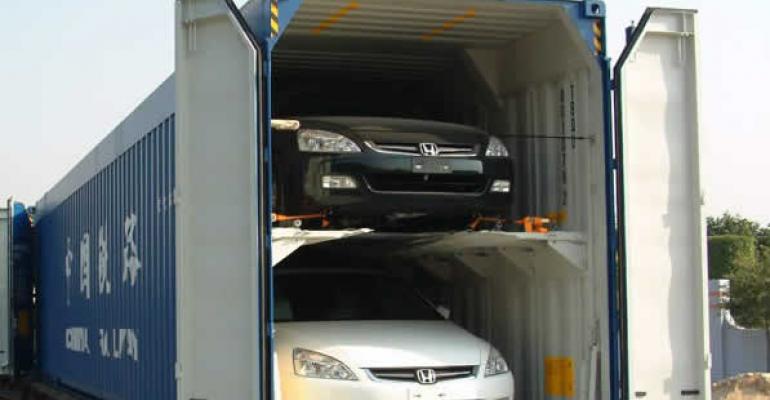With the auto industry screaming foul, the Australian government announces it will allow the personal importation of motor vehicles starting in 2018.
The Coalition government, already overseeing the impending demise of local vehicle production, now is taking on dealers by saying its new rules will mean more choice for car buyers and less red tape for the industry.
Territories, Local Government and Major Projects Minister Paul Fletcher announces changes to the Motor Vehicle Standards Act that will let consumers personally import a new car from another country with standards comparable to Australia’s, up to once every two years.
The vehicle must be a right-hand-drive passenger vehicle no more than 12 months old and with no more than 312 miles (500 km) on the odometer.
The government will determine which countries have comparable vehicle standards and says of the world’s right-hand-drive countries, Japan and the U.K. meet the standard. Other countries may be included upon reaching a comparable standard.
“Over 1 million new vehicles are sold in Australia today. Over 90% are imported and within two years all cars will be imported once Ford, General Motors and Toyota cease local manufacture,” Fletcher says in a statement.
“With around 30,000 vehicles a year expected to be personally imported, most Australians will continue to purchase vehicles directly imported by manufacturers and sold through their existing dealer networks.”
Fletcher says the new arrangement will offer consumers greater choice: “If a manufacturer chooses not to sell a particular model in Australia, a consumer may now have an option to source this model overseas.”
Time Running Out on Imported Used-Vehicle Tariff
The government also announces it is relaxing import restrictions on secondhand cars. It will remove the A$12,000 ($8,523) special duty on imported used vehicles starting in 2018.
Fletcher says the industry will see lower regulatory compliance costs, as the changes to the Motor Vehicle Standards Act will align Australia more closely with international rules.
“This will reduce regulatory costs for manufacturers while maintaining high standards for vehicle safety and environmental performance,” he says.
“Motor-vehicle manufacturing is a global industry where global standards apply. So it makes sense, and saves money, for Australia to use the global standards as much as possible.”
The Federal Chamber of Automotive Industries says consumers have been sold a dud.
“The FCAI has repeatedly called on the government to carefully consider the facts before making a policy decision that will mislead everyday consumers,” CEO Tony Weber says in a statement.
“Not only is the government taking a ‘buyer beware’ sentiment that would see many Australians caught in high-risk situations with their vehicles being outside established service networks,” he says. “The government is misleading consumers by telling them a used vehicle with 500 km (312 miles) or one that is 12 months old is new.”
Weber says the government fails to acknowledge Australians who personally import a vehicle made for another country may end up with a vehicle that does not meet their needs or operate as required in Australian driving conditions.
“If the government is so concerned about car affordability, it should look at the taxes and other government charges that make up around 20% of the price of new cars,” he says.
The Australian Automobile Assn. takes a different view, saying the changes will have economic and environmental benefits.
“This is a big win for consumers and a decision that will open up choice, help put downward pressure on prices and increase competition within the Australian car market,” AAA CEO Michael Bradley says.
“It will also produce environmental and safety benefits because it will encourage faster renewal of Australia’s vehicle fleet. Australia’s private car fleet has an average age of 10 years, which is old by global standards. The fact Australians often pay over the odds for new cars plays no small part in this.
“We also think it’s time these import restrictions were lifted because from 2018 there will be no Australian car manufacturing industry to protect.”





